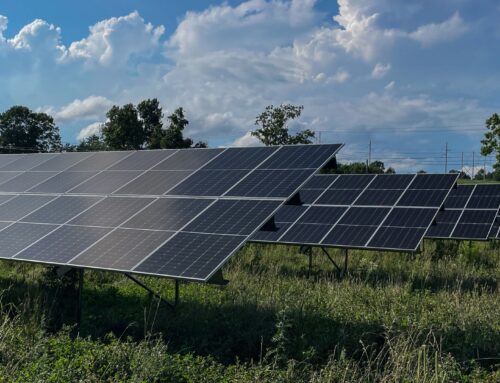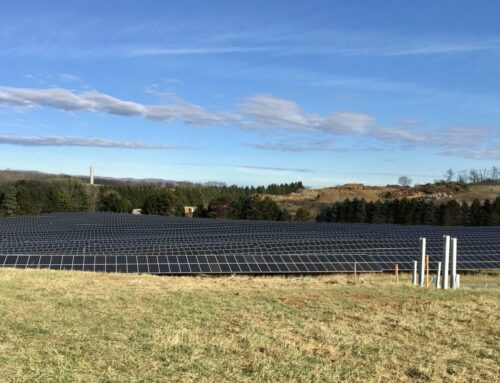NC Sierra Club, allies, ratepayers call for S266 veto – Southern Alliance for Clean Energy
June 27, 2025
Ratepayers and leaders of environmental and clean energy organizations visited the N.C. General Assembly today (Thursday, June 26) to encourage Gov. Josh Stein to veto Senate Bill 266 and urge state House and Senate members to allow a veto to stand.
S266, originally a measure to help victims of Hurricane Helene rebuild homes and businesses, was gutted and replaced with language that stands to saddle Duke Energy’s North Carolina customers with higher rates to support the monopoly utility’s construction projects, while allowing it to abandon a promise to reduce carbon emissions.
“Let’s be very clear: Senate Bill 266 is not about climate progress, it’s not about affordable energy – it’s about giving monopoly utilities more power and more profit while North Carolinians and their families need to pay the price,” Rep. Maria Cervania (District 41) said at the news conference. “It puts utilities and their profits first, above North Carolinians and their families.”
Part of the new language in S266 was unsuccessfully floated in two prior measures (S261 and the Senate’s budget proposal) that stalled in the House. All of S261’s sections, plus additional sections that create new ratepayer burdens, were added to S266 by a House committee whose members received the substitute language only the night before a hearing on the measure; the committee substitute language was made public minutes before the hearing began.
“If [S266] were truly focused on power bill reduction, those advancing it would have moved it forward publicly and on its merits. Instead it’s been quietly buried in a budget bill and disguised in a bill intended to be hurricane relief,” Chris Herndon, Chapter Director of the NC Sierra Club, said.
In addition to freeing Duke Energy from its pledge to lower carbon emissions by 70% from 2005 levels by 2030, S266:
- makes changes to Duke Energy’s cost recovery mechanisms that incentivize the use of risky, expensive power plant fuels such as natural gas over clean, renewable energy like solar and wind;
- changes the way fuel and purchased power costs are allocated to create a higher burden on residential customers, instead of non-residential customers (currently the burden is about equal);
- expands the definition of what can be recovered and allows for quarterly fuel cost adjustments, which can result in more frequent rate increases;
- allows Duke Energy to exceed the current $500 million cap on new generation that can be included in rates set outside of the normal ratemaking process; and
- changes how Duke Energy is allowed to recover construction financing costs (construction work in progress, or CWIP), allowing shortcuts in approvals to pass these costs to ratepayers.
Chris Herndon speaks at the news conference
Additional quotes from news conference speakers:

Re 2030 carbon reduction goal, set in 2021 legislation that passed with bipartisan support:
“Deadlines matter, and it gave us a clear, science-based target to hold the utilities accountable. … Without it, progress slows and polluters face no urgency to act.”
“I’m not saying we shouldn’t have a diversified portfolio. We need a little bit of everything, but we made a commitment to close down coal plants and to divest from natural gas and commit more to solar and wind. And that is not happening.”
Re CWIP:
“We don’t want to be fooled. We don’t want to have projects that fail or run over budget.”
Re the shift in power cost allocations:
“They want to keep the flexibility to be able to overcharge us with the share that has put the burden on us.”

“Sadly, Duke Energy’s North Carolina customers have no say in this situation. They can’t get their power from any other provider. They’re already trying to manage higher bills due to volatile fuel prices. And it is likely to get worse as Duke stalls its promised transition to affordable, stable-cost renewable energy and doubles down on dirty fossil fuels.”
“North Carolina’s elected leaders should listen to their constituents. Polling by Conservatives for Clean Energy this spring showed voters statewide oppose a key provision in this bill that allows utilities to charge customers for a power plant before it’s even supplying energy. That’s regardless of their political affiliation – 75% of Republicans, 77% of unaffiliated voters, and 79% of Democrats oppose it.”

“The Public Staff of the N.C. Utilities Commission estimates that, at a minimum Senate Bill 266 will result in a $24.8 million cost shift from non-residential customers to residential customers because of a change in the way fuel and purchased power costs are allocated between the rate classes. … [T]his bill would increase what residential customers pay compared to what they consume, while the big corporations would pay less. That cost shift means utility bills for families and low-wage workers will increase while North Carolina’s largest corporations reap the benefits. It will only get worse as natural gas prices continue to rise as U.S. gas becomes an international commodity via liquid natural gas exports.”

“Our region is already facing a 14.6 percent rate hike over the next three years, with the first 8 percent chunk already baked into bills this winter. By 2026, the typical 1,000-kilowatt-hour household will pay almost $20 more every month — money that could buy groceries, prescriptions, or school supplies instead of paying off a utility’s balance sheet. Senate Bill 266 tells those same families, ‘Get ready to pay even sooner.’”
Re CWIP laws in South Carolina, Georgia and Mississippi, where ratepayers are still paying for power plant projects ran over budget, missed deadlines or even failed entirely:
“The pattern is painfully clear: CWIP shifts multi-billion-dollar gambles from Wall Street to Main Street. When projects go over budget — or never produce power — families and small businesses keep writing checks long after the ribbon-cutting parties have been cancelled.”

Re the 2021 legislation that set the 2030 carbon reduction target in return for allowing Duke Energy an easier path to rate increases, and disincentivizing a shift to renewables:
“This monopoly utility has demonstrated that its promises can’t be trusted. Eliminating this important decarbonization target means electric bills will increase as utilities rely on the volatile natural gas market instead of cheaper and more reliable solar power.
“Duke Energy plans to build several new natural gas power plants and has received approval for significant new natural gas capacity – for example, 8,925 megawatts of new combined cycle and combustion turbine natural gas facilities in one proposed scenario. Even after transitioning from coal, new natural gas plants will still emit thousands of tons of other harmful air pollutants annually, including nitrogen oxides, fine particulate matter, sulfur dioxide, carbon monoxide, and volatile organic compounds. These pollutants contribute to smog, respiratory issues, and other public health problems.”

“Many of us in eastern North Carolina are not happy with what appears to be the NC House’s and Senate’s abandonment of both environmental protections and compassion for working people. We – especially my generation – worked very hard to put those protections in place for ourselves and for future generations.”
Re solar and wind energy development in eastern NC:
“North Carolina has long been a leader in development of renewable energy, which provides steady employment and economic success to countless North Carolinians. Cypress Group volunteers have often spoken up to support development of solar energy in our region. We’re also proud to host two onshore wind farms – one of which was the very first onshore wind development in the Southeast. Those wind farms have been a financial boon to the counties that host them.”
“[S266] contradicts and even reverses past policies that have helped generate a strong economy and good jobs while also preserving a clean and healthy environment, and protecting working ratepayers. The people in eastern North Carolina know better. They know such legislation is possible. North Carolina has the track record to prove it.”
“North Carolina can have a clean environment and affordable, clean electricity without personally underwriting the financial risks of Duke’s construction projects. Don’t tell us we can’t. We don’t believe you. We’ve seen proof that we can do it.”

“I have been a lifelong proponent of renewable energy sources, and like many climate-conscious North Carolinians, have faced challenges in getting solar panels installed on my property. Our hopes have always been in our state government ensuring that our public utilities pursue responsible, renewable energy goals to reduce carbon emissions in our state.”
“My husband and I are both retirees, living on a fixed income. Adding extra costs is something that many North Carolina residents like ourselves cannot easily adjust for, especially for people who are obliged to get their electricity from a monopoly utility. … I don’t think it’s fair for a multi-billion-dollar monopoly to saddle ordinary ratepayers with additional costs up front, with no guarantee of delivering any functioning power plants, no guarantee that those power sources will be renewable, and no way for us to get our money back if they fail to uphold their end of the deal.”
“It isn’t right for our legislators to favor a company like Duke Energy at the expense of ordinary citizens. … We need our elected leaders to stand up for us.”
###
About the Southern Alliance for Clean Energy (SACE)
Since 1985, the Southern Alliance for Clean Energy has worked to promote responsible and equitable energy choices to ensure clean, safe, and healthy communities throughout the Southeast. Learn more at cleanenergy.org.
Search
RECENT PRESS RELEASES
Related Post




![Pressing for more wind and solar power in Pennsylvania [opinion]](https://stockwatchindex.com/wp-content/uploads/2025/06/Election_2024_Clean_Energy_17658-Puw4Dx-500x383.jpeg)
